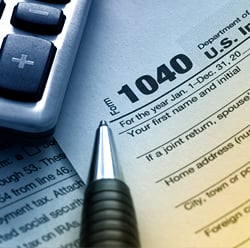 To help people save time and return their taxes by the April deadline, there are several options that help guide you through filing your own taxes quicker and more conveniently.
To help people save time and return their taxes by the April deadline, there are several options that help guide you through filing your own taxes quicker and more conveniently.
Unfortunately, quick doesn’t always equate to accurate, and a quick guide cannot adequately teach you the many laws, codes, standards, and deductions that you should know before filing.
Because of that lack of knowledge and experience, people often make mistakes when filing their personal taxes that could end up proving costly.
Overestimating Your Math Abilities
The math skills needed to calculate your income and expenses isn’t usually intricate, but it can be tedious. If tax time is the only time that you do such intense arithmetic, then your skills may be a bit rusty, and you will be more likely to make a mistake when trying to compute your taxes.
Missing Deductions
Even if your math prowess is flawless, some things are just impossible for you to know without prior knowledge or extensive research. For instance, you might not realize all of the deductibles that you qualify for, and end up receiving less than you deserve. Or, you might claim something that does not actually qualify for a deductible, based on inaccurate advice or information.
Forgotten Income
If you receive income as a gift, reward, or from a savings or investment account, you may or may not remember by the time you have to file your taxes. If not reported, then there will be a discrepancy between what you earn and what you report, and you may wind up owing the IRS instead of being owed a return.
Procrastination
Some people realize the significant challenges to filing their own taxes, but believe doing so is the only way they can afford to. Rather than facing their fears, or seeking professional advice, they may procrastinate until it is too late, adding to their fear and apprehension. If you have procrastinated for a year or more to file your taxes, the call our office and schedule a consultation so we can discuss how to resolve your situation and get you back on track.






